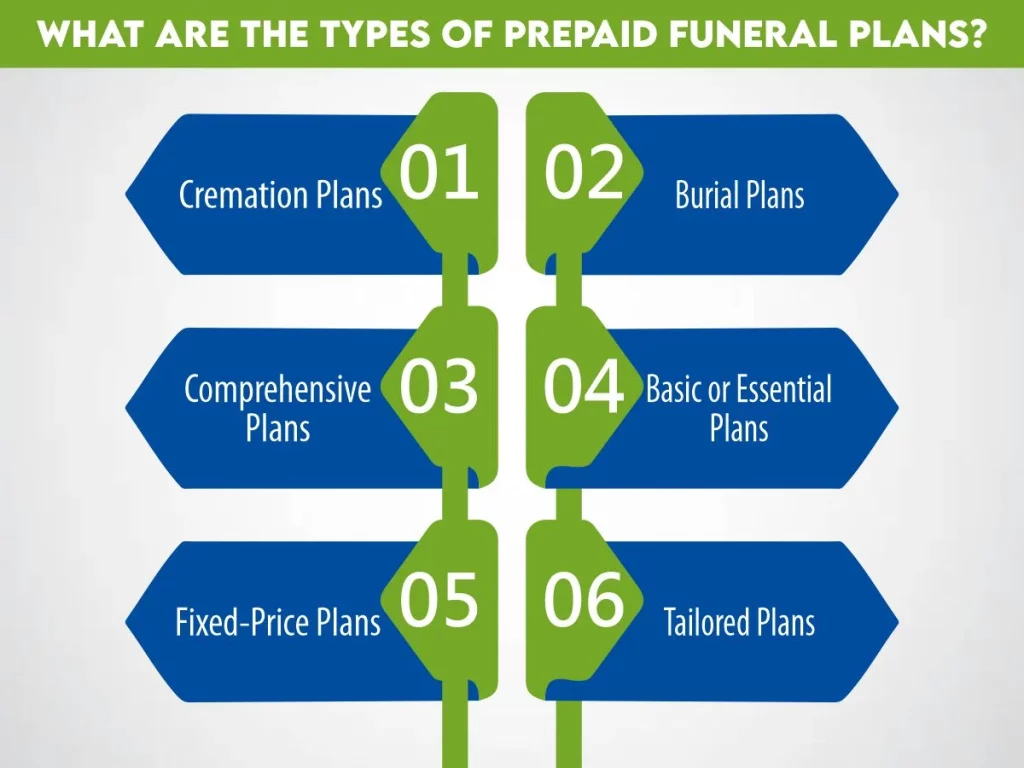Planning for the future isn’t just about career goals or financial investments; it’s also about preparing for life’s eventualities. One such consideration that often gets sidelined is planning for the inevitable—the end of life. It might not be the most comfortable topic, but it’s an essential part of responsible financial management.
Enter prepaid funeral plans; the strategic, albeit often overlooked, solution that allows individuals to take charge of their final arrangements in advance. Imagine securing peace of mind for yourself and lightening the emotional and financial load for your loved ones during an already challenging time. One notable option to explore when contemplating the pros and cons of prepaid funerals is considering prepaid funeral plans.
In this guide, we’ll explore the ins and outs of prepaid funeral plans, their perks, pitfalls, and how integrating this thoughtful approach into your life aligns seamlessly with strategic career growth. Let’s embark on this journey of understanding and empowerment together!
What is a Prepaid Funeral Plan?
A prepaid funeral plan is a financial arrangement made to cover the costs of funeral services in advance. It involves selecting and paying for funeral services at current prices, ensuring the costs are locked in and mitigating the impact of inflation on future expenses. Essentially, it allows individuals to alleviate the financial burden and decision-making stress on their loved ones during a difficult time.

What are the Types of Prepaid Funeral Plans?
Prepaid funeral plans come in various types, offering flexibility and customization to suit individual preferences and budgetary considerations. Here are some common types of prepaid funeral plans:
1- Cremation Plans
These plans cover expenses related to cremation services. They may include options for the cremation process, memorial services, urn selection, and the scattering or interment of ashes.
2- Burial Plans
Tailored for those preferring traditional burial, these plans encompass costs associated with the burial plot, casket, funeral service, graveside ceremony, and headstone or marker.
3- Comprehensive Plans
These all-inclusive plans cover a range of services, including both burial and cremation options. They often offer more customization, allowing individuals to specify their preferred services and arrangements.
4- Basic or Essential Plans
Aimed at providing essential services without frills, these plans cover the fundamental aspects of a funeral, ensuring a dignified send-off without extravagant expenses.
5- Fixed-Price Plans
These plans lock in the current costs of funeral services, protecting against inflation. They guarantee that the specified services will be provided regardless of future price increases.
6- Tailored Plans
Some providers offer flexibility for individuals to tailor plans according to their specific wishes, allowing for a more personalized approach to funeral arrangements.
Pros and Cons of Prepaid Funerals
Certainly, prepaid funeral plans come with their share of advantages and disadvantages. Understanding these can help individuals make informed decisions about whether such plans align with their needs and preferences.
How Much Does Life Isurance Cost?
Advantages of Prepaid Funerals
- Financial Security: Locking in current prices protects against inflation, ensuring that the funeral costs are covered at today’s rates, regardless of future increases.
- Relieves Family Burden: Prepaid plans ease the emotional and financial burden on loved ones, sparing them from making difficult decisions during a distressing time.
- Customization: Individuals can personalize their funeral arrangements, specifying preferences for services, caskets, urns, and ceremonies, ensuring their wishes are honored.
- Peace of Mind: Knowing that one’s final wishes are documented and paid for provides reassurance and peace of mind.
Disadvantages of Prepaid Funerals
- Inflexibility: Altering or making changes to the plan might be challenging and may involve additional costs or limitations.
- Provider Reliability: The plan’s fulfillment depends on the stability and reliability of the funeral provider. If the provider goes out of business, there might be risks of losing the funds.
- Potential Loss of Funds: If the terms and conditions are not carefully reviewed, there might be risks of losing money if circumstances change or the plan isn’t transferrable.
- Unforeseen Circumstances: If the individual moves to a different location or circumstances change, the prepaid plan may not cover certain unexpected costs or services.
What are the Best Prepaid Funeral Plans?
Determining the “best” prepaid funeral plan is subjective and depends on individual needs, preferences, and budget constraints. However, several reputable providers offer comprehensive prepaid funeral plans that are highly regarded within the industry.
Here are a few notable options:
1- AARP
AARP (American Association of Retired Persons) offers members access to affordable prepaid funeral plans through its trusted partners. These plans often come with member benefits and competitive pricing.
2- Funeral Directors Life
Known for its flexible payment options and comprehensive plans, Funeral Directors Life offers customizable prepaid funeral plans that cater to various preferences and budgets.
3- National Guardian Life (NGL)
NGL provides prepaid funeral plans designed to cover funeral expenses while ensuring financial security. They offer plans with fixed pricing to protect against future cost increases.
4- Lincoln Heritage Funeral Advantage
This provider specializes in final expense insurance and prepaid funeral plans, offering coverage for funeral costs and catering to individuals seeking financial protection for their loved ones.
5- Global Atlantic Financial Group
With a range of burial insurance and prepaid funeral plans, Global Atlantic offers options for individuals looking to alleviate the financial burden of funeral expenses.
6- Forethought Life Insurance Company
Forethought offers prepaid funeral plans that allow customization and flexibility in arranging funeral services. They focus on providing peace of mind and financial security.
Selecting the “best” prepaid funeral plan involves considering factors such as personal preferences for services, budget, flexibility in plan terms, and the reliability of the provider. It’s crucial to research each provider thoroughly, compare plan offerings, read reviews, and understand the terms and conditions before making a decision.
How Much Do Prepaid Funeral Plans Cost?
The cost of prepaid funeral plans varies widely based on factors such as location, services included, and the provider. On average, these plans can range from a few thousand to several thousand dollars.
Here’s an example table showcasing estimated costs for prepaid funeral plans:
| Type of Plan | Estimated Cost Range |
| Cremation Plan | $2,500 – $7,000 |
| Burial Plan | $4,000 – $10,000 |
| Comprehensive Plan | $5,000 – $12,000 |
| Basic/Essential Plan | $2,000 – $5,000 |
| Fixed-Price Plan | $3,000 – $8,000 |
| Tailored/Customized Plan | $4,000 – $15,000 |
These estimations are indicative and can vary significantly based on factors like the specific services included, the region’s cost of living, additional preferences, and any applicable taxes or fees. It’s crucial to request detailed quotes from various providers to get a more accurate understanding of the costs associated with different prepaid funeral plans.
Furthermore, considering potential inflation rates is essential, especially for fixed-price plans that aim to mitigate future cost increases. Always review the breakdown of services and payment options before finalizing a plan to ensure it aligns with both your preferences and financial capabilities.
What are the Rules for a Private Funeral?
Private funerals offer a more intimate and personalized setting for bidding farewell to a loved one. Here are some general guidelines and considerations for organizing a private funeral:
- Guest List
Limited Attendance: Private funerals typically restrict the guest list to immediate family members, close friends, and select individuals who had a significant relationship with the deceased.
Invitations: Personal invitations or notifications are sent out to those included in the guest list, specifying the details of the service.
- Location and Setting
Intimate Venue: These services are often held in smaller venues, such as homes, chapels, or private rooms within funeral homes.
Personalized Atmosphere: Families have the flexibility to create a more personalized and emotionally intimate setting for the ceremony.
- Ceremony and Arrangements
Customization: Families can tailor the ceremony to reflect the personality and preferences of the deceased, incorporating specific readings, music, rituals, or tributes.
Flexibility: There’s greater flexibility in the structure and timeline of the service, allowing for more time and space for personal reflections and expressions of grief.
- Privacy and Respect
Respect for Wishes: Private funerals aim to honor the wishes of the deceased and their family, providing a more controlled and private environment for mourning and remembrance.
Confidentiality: Respect for privacy is paramount, ensuring that the ceremony remains confidential and exclusive to the invited guests.
- Aftercare
Support: Following the private funeral, families may choose to organize a separate gathering or reception to offer support, share memories, and provide comfort to one another.
It’s important to note that rules and customs surrounding private funerals can vary widely based on cultural, religious, or familial preferences. Consulting with a funeral director or a religious/cultural advisor can provide guidance and support in organizing a private funeral that respects traditions and honors the memory of the departed in a meaningful way.
Conclusion
Planning for the inevitable is a responsible and considerate act, especially in the realm of prepaid funerals. These plans offer financial security, peace of mind, and the opportunity to personalize one’s final arrangements. However, they come with certain limitations and considerations that necessitate careful evaluation before making a commitment.
When exploring the pros and cons of prepaid funerals, it’s crucial to remember that choosing a prepaid funeral plan involves a significant decision impacting both finances and emotions. Conduct thorough research, seek advice when needed, and make a decision that best suits your circumstances and aspirations.
FAQs
1- Can You Get a Refund on a Prepaid Funeral?
Refund policies vary among providers and may be contingent upon specific circumstances. Some plans offer a full or partial refund within a specified period, while others might have strict no-refund policies. It’s crucial to thoroughly review the terms and conditions before committing to a prepaid funeral plan. Understanding the pros and cons of prepaid funerals is essential when assessing refund policies.
2- Are Prepaid Funeral Plans Protected?
In many countries, prepaid funeral plans are regulated and protected by laws or governing bodies to safeguard consumers’ funds. These regulations aim to ensure that the money paid towards the plan is secure and will be available to cover funeral expenses when needed.
3- Can You Transfer a Funeral Plan?
Transferring a prepaid funeral plan may be possible with certain providers. However, this process often involves stringent conditions and may incur administrative fees. Individuals considering transferring their plans should carefully review the terms and discuss options with the provider, weighing the pros and cons of prepaid funerals in the context of plan transfers.
4- Can Prepaid Funeral Costs Be Claimed as Tax Deductions?
In many cases, prepaid funeral expenses are not eligible for tax deductions. However, consulting with a tax professional or financial advisor can provide clarity on any potential tax benefits or implications associated with prepaid funeral plans.

Joyce Espinoza, Expert Life Insurance Agent
Joyce Espinoza is a trusted life insurance agent at mLifeInsurance.com. She’s been in the insurance industry for over ten years, helping people, especially those with special health conditions to find the right coverage. At MLife Insurance, Joyce writes easy-to-understand articles that help readers make smart choices about life insurance. Previously, she worked directly with clients at Mlife Insurance, advising nearly 3,000 of them on life insurance options.


